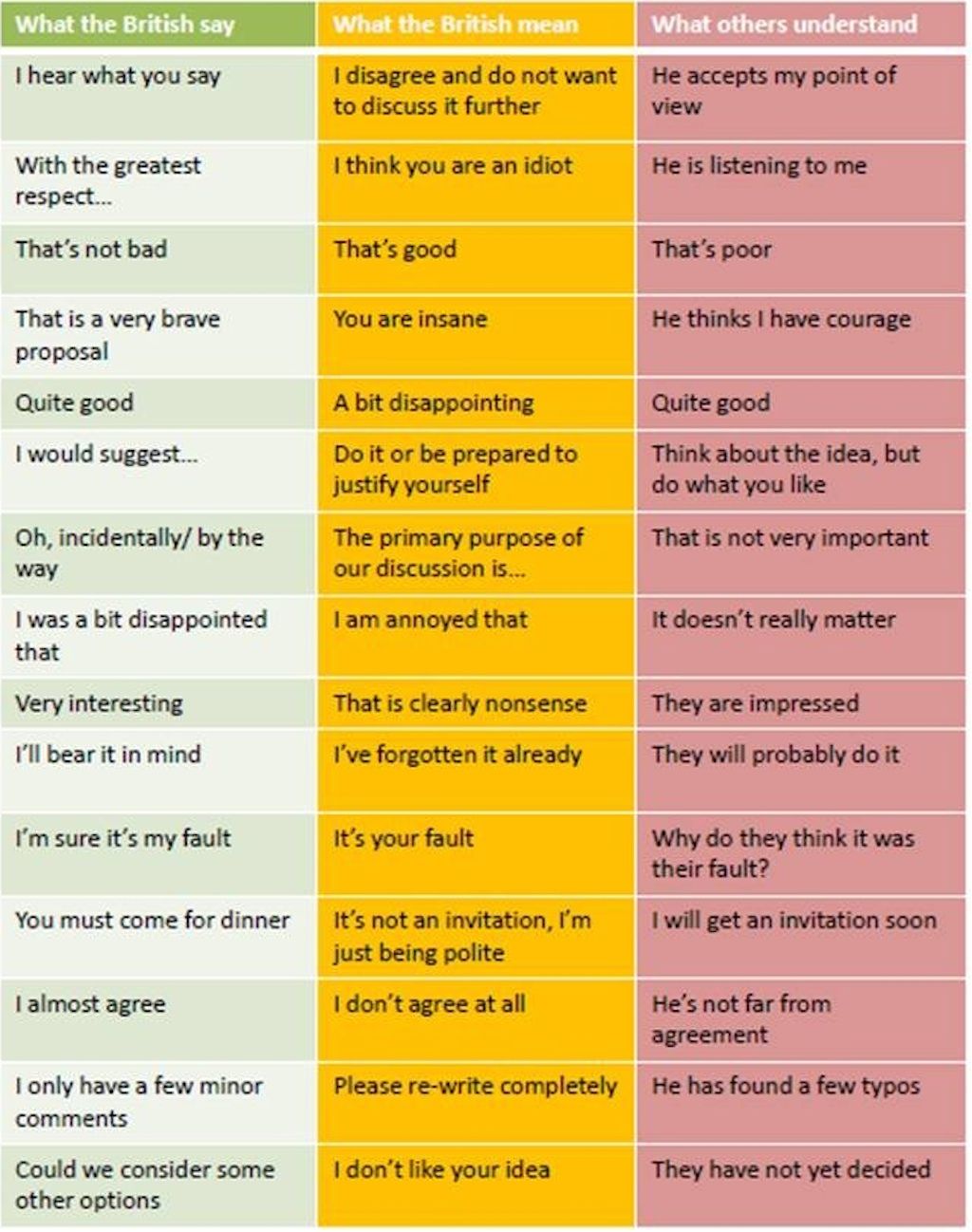Survey Says Most Americans Don’t Recognize When British People Are Insulting Them

As an American who once lived in England, I can confidently say that it takes a while to understand all the glorious nuances of British English. Sure, the language may seem more or less the same, but certain phrases have a very different meaning in the U.K. than they do in the U.S., and it can be months before you realize that “I’ll have to check my calendar” means “I have absolutely no intention of ever seeing you again.”
Recently, YouGov conducted a survey to see how many Americans can actually detect the passive-aggressive subtext of some seemingly polite statements, and we did not fare well. For example, 68 percent of Brits interpreted the phrase, “With the greatest respect…,” as meaning “I think you are an idiot.” Half of Americans thought it meant “I am listening to you.”
More than 50 percent of British people know that “I’ll bear it in mind” means “I’ve forgotten it already,” while nearly half of Americans interpreted the same phrase as “I’ll probably do it.”
The phrase “I hear what you say” was the most contested, probably because tone and context are kind of crucial. Fifty-eight percent of Americans thought it meant “I accept your point of view,” whereas 48 percent of Britons interpreted it as “I disagree and do not want to discuss it further.”
And don’t get too excited if you’re in London and you hear the phrase, “You must come for dinner!” Forty-one percent of Americans thought it meant “I will send you an invitation soon,” whereas 57 percent of Britons know it’s just a polite formality that will never actually manifest itself into an actual invitation.
Half of Americans wouldn’t be able to tell that a Briton is calling them an idiot, finds our new study on British subtext
What does “with the greatest respect” mean?
“I think you are an idiot”: 🇬🇧 68% / 🇺🇸 40%
“I am listening to you”: 🇬🇧 24% / 🇺🇸 49%https://t.co/9EZXEJjUtM pic.twitter.com/Us8OsMPgc3— YouGov (@YouGov) January 11, 2019
If you’re not easily offended by such things, the survey is actually quite hilarious, and it’s currently going viral. It was actually inspired by a meme that circulated around the Internet a few years ago and divided certain Britishisms into “what the British mean” and “what others understand.” My personal favorite is “That is a very brave proposal,” which does not mean (as you might be forgiven for thinking) “he thinks I have courage.” Rather, it means,”you are insane.”

If this sort of Anglo-American silliness interests you, please know that you can also find great translations of funny Britishisms courtesy of the Twitter account “Very British Problems.”
“It’s a bloody nightmare”
Meaning: Something is proving a mild inconvenience; typically used to describe slightly heavy traffic, or the internet not working“It’s not ideal”
Meaning: Something terrible has happened and life is almost certainly ruined— VeryBritishProblems (@SoVeryBritish) December 6, 2018
And for more hilarious things that get totally lost in translation, check out the 30 Things Americans Do That Foreigners Think Are Super Weird.
To discover more amazing secrets about living your best life, click here to follow us on Instagram!